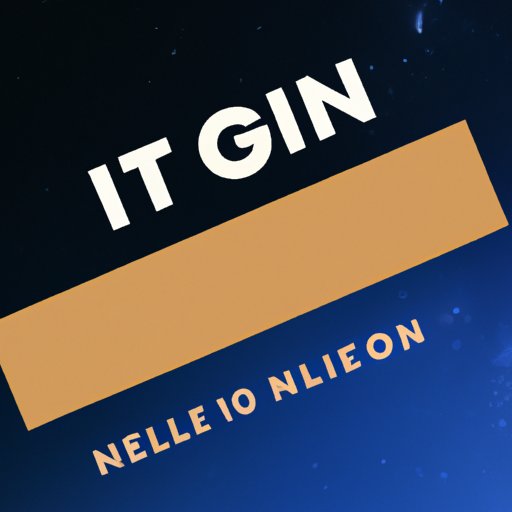
Introduction
Many people are turning to melatonin as a natural alternative to sleeping pills, but there is a lot of confusion about what it is and what it does. In this article, we will explore the truth about melatonin, its effects on the brain and body, and whether or not it can cause a ‘high’.
The Truth About Melatonin: Separating Fact from Fiction
Melatonin is a hormone produced by the pea-sized pineal gland in the brain. Its primary function is to regulate the sleep-wake cycle, but it also serves other important functions in the body, such as immune system support and antioxidant activity. However, there are many myths about melatonin that need to be debunked.
One common myth about melatonin is that it is addictive, but this is not true. Melatonin is not a drug, it is a hormone that is naturally produced by the body. Another myth is that taking melatonin will make you drowsy the next day, but this is also not true. Melatonin does not cause drowsiness like sleeping pills do, and it actually has a short half-life in the body.
So, what are the real effects of melatonin?
Melatonin and its Effects on the Brain and Body
Melatonin works by regulating the body’s internal clock, which helps to promote sleep. It is produced in response to darkness and inhibited by light, which is why it is often taken as a sleep aid before bedtime. Additionally, melatonin has antioxidant properties, which can help to reduce inflammation and protect against oxidative stress.
However, some people have reported feeling a ‘high’ or euphoria after taking melatonin. This is likely due to the fact that melatonin can cause drowsiness and relaxation, which can have similar effects to alcohol or other sedatives. But can you really get high on melatonin?
Can Melatonin Cause a ‘High’?
The short answer is no, melatonin cannot cause a ‘high’ in the traditional sense of the word. Melatonin is not a psychoactive substance, and it does not produce feelings of euphoria or altered perception like drugs such as marijuana or LSD do.
However, melatonin can cause drowsiness and relaxation, which can be interpreted as a pleasant, relaxing sensation by some people. This is not the same as a ‘high’, which is typically associated with hallucinations, altered perception, and a loss of control.
The Dangers of Taking More Melatonin than Prescribed
While melatonin is generally considered safe when taken as directed, it is possible to overdose on the hormone. Symptoms of melatonin overdose include dizziness, headache, nausea, and irritability. In rare cases, melatonin overdose can lead to seizures or other serious complications.
It is important to follow the recommended dosage when taking melatonin, and to avoid taking it in combination with other medications or supplements without first consulting a healthcare provider.
Melatonin vs Sleeping Pills – Which is Safer?
Many people are turning to natural remedies like melatonin as an alternative to prescription sleeping pills. While melatonin is generally considered safe, there is some debate about whether it is more or less safe than sleeping pills.
One advantage of melatonin is that it is a natural hormone that is produced by the body, whereas sleeping pills are synthetic drugs that can have more side effects and risks. Additionally, melatonin is less likely to cause dependence or addiction than sleeping pills, which can be habit-forming.
However, sleeping pills are generally more effective at treating insomnia than melatonin, and may be a better choice for people with severe sleep problems.
Can Melatonin be Used for Recreational Purposes?
There is a growing trend of people using melatonin for recreational purposes, particularly among young people. Some people believe that melatonin can produce a relaxing, euphoric high that is similar to alcohol or other sedatives.
However, misuse of melatonin can have serious consequences, including overdose and other health risks. Additionally, using melatonin as a recreational drug goes against its intended purpose as a sleep aid, and can lead to sleep disturbances and other problems.
Overall, it is not safe or recommended to use melatonin for recreational purposes.
Melatonin’s Therapeutic Benefits for Anxiety and Stress
In addition to its sleep-promoting effects, melatonin may also have therapeutic benefits for anxiety and stress. Studies have shown that melatonin can help to reduce anxiety, promote relaxation, and improve mood.
Compared to other medications used to treat anxiety and stress, such as benzodiazepines, melatonin is generally considered safer and less addictive. Additionally, melatonin has a low risk of side effects, which makes it a good choice for people who are sensitive to medication.
Melatonin and the Importance of Sleep Hygiene
While melatonin can be a useful tool for promoting sleep, it is important to also practice good sleep hygiene in order to get the best results. Sleep hygiene refers to the habits and practices that promote good sleep, such as avoiding caffeine and electronics before bedtime, creating a comfortable sleep environment, and sticking to a regular sleep schedule.
Melatonin can help to regulate the sleep-wake cycle and improve sleep quality, but it is not a cure-all for sleep problems. By combining melatonin with good sleep hygiene habits, you can maximize its effectiveness and promote healthy sleep.
Conclusion
Melatonin is a hormone that is essential for regulating the sleep-wake cycle, but it is also a popular sleep aid and natural remedy for anxiety and stress. While it is generally safe when taken as directed, it is important to understand its effects and potential risks before using it.
Remember to follow the recommended dosage, avoid taking it in combination with other medications or supplements without consulting a doctor, and practice good sleep hygiene for the best results.





